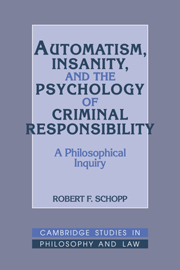Summary
The Anglo-American law has traditionally defined criminal offenses as requiring both an actus reus and a mens rea. The state must prove both types of elements in order to secure a conviction. The actus reus is usually described as the criminal act or the physical part of the offense, whereas the mensrea defines the required state of mind or the mental part. Various offenses have required mental states such as intent, recklessness, negligence, depraved mind, malice aforethought, and many others. Unfortunately, it has proven extremely difficult to establish either the precise meaning of these terms or the relationships among them. Additionally, many offenses are not easily divisible into physical and mental parts.
The American Law Institute's Model Penal Code (MPC) avoids some of the traditional problems by substituting a relatively simplified set of terms and requirements for offense definitions. The MPC eschews the traditional terminology of actus reus and mens rea in favor of a system of objective offense elements and culpability requirements. The basic principles of the MPC are widely accepted as representative of dominant trends in mainstream American law. Many states have incorporated these principles into their criminal codes since the MPC was officially recommended by the American Law Institute in 1962.
In order to secure a conviction in a criminal trial under the MPC, the prosecution must prove all elements in the definition of the offense.
- Type
- Chapter
- Information
- Automatism, Insanity, and the Psychology of Criminal ResponsibilityA Philosophical Inquiry, pp. 1 - 26Publisher: Cambridge University PressPrint publication year: 1991

